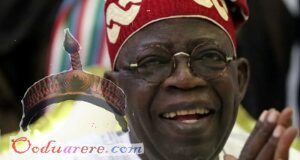The suffering raw gas rates, which may have continued o trigger apprehension throughout the worldwide industry may possibly set stress on the capacity of the Key Bank of Nigeria (CBN) to intervene in the forex market. The worldwide raw gas rates, that was somewhat secure for almost four decades has been on a fall in recent months and this could damage the country’s additional reserves and revenue. A Lagos-based expense business, WSTC Financial Services Limited, in their newest financial record acquired on Saturday, stated: “Slipping raw rates constrain CBN intervention. To be able to base leakages and to minimize change charge volatility, the CBN authorised an obligatory recapitalisation of firms running in the office p modify (BDC) section of the forex industry by having an upward overview of the minimal money requirement for operation in the section from N10 million to N35 million and also with the cautionary deposit of N3 million examined to N35 million.
“This has subsequently contributed to the narrow spread between exchange rates in the bureau de change market and other segments of the Nigerian forex market.”
Nevertheless, WSTC predicted that the constant treatment by the CBN could be limited by the decline in the rate of accretion to the nation’s international reserves. The predicted decline international reserves accretion was predicated on its prospect of poor gas earnings caused by slipping elementary gas rates and sub-optimum degree of domestic gas production.
The report also projected that the naira would depreciate this quarter. It added: “Also, given the prevalence of domestic uncertainties, weak economic fundamentals and impending increase in interest rates in the US on the horizon, we do not expect the downward pressure on the naira to subside within the fourth quarter of 2014.
“Consequently, we envisage a slide in the value of the naira as we approach the 2015 general elections.”
However, it maintained that the Nigerian economy has remained resilient to tight monetary policy, despite national security challenges and sluggish global recovery.
The Nigerian economy expanded by 6.5 per cent in the second quarter 2014 on the back of solid growth in both the oil and non-oil sectors.“While we expect domestic growth to remain robust in second half of 2014, we believe that the performance of the oil sector will be dampened by dwindling international oil prices and weaker-than-projected domestic crude production,” it added.
The equities market ended third quarter 2014 amid weak corporate performance, lingering security crisis and tighter global liquidity. Also, yields leapt northwards during the third quarter in the fixed income market on the back of rising country risk.“Overall, we reckon that tight domestic liquidity measures, weak government earnings, rising political tensions ahead of the 2015 general elections and impending normalisation of rates in the US portend downside risks to the performance of financial markets in Q4 2014,” it added
 Ọmọ Oòduà Naija Gist | News From Nigeria | Entertainment gist Nigeria|Networking|News.. Visit for Nigeria breaking news , Nigerian Movies , Naija music , Jobs In Nigeria , Naija News , Nollywood, Gist and more
Ọmọ Oòduà Naija Gist | News From Nigeria | Entertainment gist Nigeria|Networking|News.. Visit for Nigeria breaking news , Nigerian Movies , Naija music , Jobs In Nigeria , Naija News , Nollywood, Gist and more










